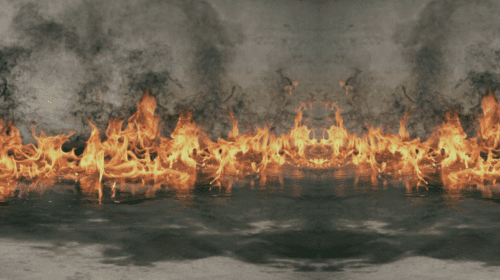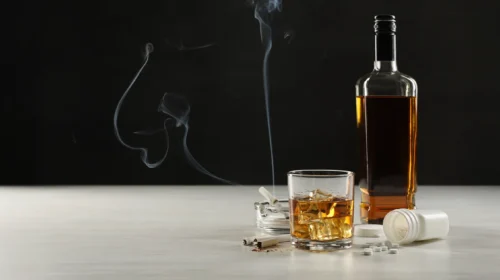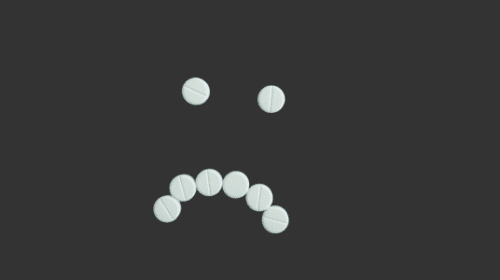Major depression is the most common mental health disorder in the US.[1] In 2023, an estimated 21 million Americans aged 18 and older – 8.3% of all US adults – had at least one major depressive episode.[2]
Depression is treatable, however. Many people undergo a combination of psychotherapy and medication, including the antidepressant Zoloft. Unfortunately, depression also has a connection to alcohol use, often as a form of self-medication – and Zoloft and alcohol can be a dangerous combination. Before we get into the risks of mixing alcohol and Zoloft, we’ll quickly review what Zoloft is as well as the relationship between depression and alcohol.
What Is Zoloft?
Zoloft is a commonly prescribed antidepressant. The generic form of Zoloft is called sertraline. This medication is what’s known as a selective serotonin reuptake inhibitor (SSRI) and is used to treat depression, obsessive-compulsive disorder, posttraumatic stress disorder (PTSD), premenstrual dysphoric disorder (PMDD), social anxiety disorder, and panic disorder.[3]
Antidepressants like Zoloft work by targeting neurotransmitters in the brain and changing the way they’re used to better regulate mood and behavior. They also induce neuroplasticity, a process that allows the brain to restructure itself by responding to changes in the environment – in short, “rewiring” itself.[4]
Some of the main side effects of Zoloft can include nausea, dizziness, lethargy, changes in appetite, joint and muscle pain, dry mouth, upset stomach, diarrhea, and trouble sleeping.[5] When used properly, Zoloft can help promote calmness, stop people from obsessive fixation, and improve mood.
Depression and Alcohol
Alcohol use disorder and depression have a bidirectional relationship, meaning that they influence one another.[6] The disorders can exist together and worsen each other, but one also increases the risk of developing the other. Both alcohol use disorder and depressive disorders are among the most common psychiatric disorders and co-occurring disorders.
The relationship between alcohol use disorder and depression is complex and may involve similar genetic and environmental factors. In some cases, people with depressive disorders abuse alcohol to alleviate their symptoms, which only works for a short period, leading to deeper depression when the effects wear off. This begins a vicious circle that leads to alcohol use disorder.
Mixing Alcohol and Zoloft: Is It Ever Safe?
Mixing alcohol and antidepressants like Zoloft can intensify the side effects of the medication, leading to drowsiness, dizziness, and impaired motor control. It also increases the risk of overdose.
Both Zoloft and alcohol increase the levels of serotonin in the brain. If this happens during the course of depression treatment, alcohol can lessen the effects of Zoloft and worsen depression symptoms.[7] Drinking regularly while taking Zoloft not only limits the efficacy of your treatment but may increase your risk of adverse effects from the interaction.
More importantly, research shows that even low levels of alcohol consumption while on Zoloft can decrease a person’s commitment to their medication, increasing their impulsivity and risk for suicidal thoughts and actions.
Other dangers of mixing alcohol and Zoloft include, but are not limited to:
- Dizziness
- Thoughts of suicide
- Increased depression
- Increased anxiety
- Migraine and headache
- Diarrhea and stomach pain[8]
Both alcohol and Zoloft can have central nervous system depressant effects; mixing them can lead to increased drowsiness, dizziness, and impaired motor control.
Is Having One Drink Okay While Taking Zoloft?
The FDA recommends avoiding alcohol completely while taking Zoloft. Unfortunately, there isn’t enough research to determine whether one or two drinks will have a negative effect while taking Zoloft, but the prescribing information recommends avoiding alcohol altogether.[9]
Treatment for Zoloft and Alcohol Abuse
It’s best to avoid drinking alcohol while taking Zoloft, not just because of the risks but the effects on your treatment. In addition, neither Zoloft nor alcohol should be stopped suddenly, as intense and potentially dangerous withdrawal symptoms can occur.
If you or a loved one are struggling with depression and alcohol abuse or addiction, it’s important to seek treatment for co-occurring disorders. This often involves an integrated approach that treats both conditions simultaneously, including:
- Medical detox: Usually the first step in a treatment plan, detox provides a safe, comfortable environment to rid the body of alcohol under the supervision of healthcare professionals.
- Medications: Antidepressants and other medications may be used to treat alcohol use disorder and prevent relapse, as well as to relieve the symptoms of depression for better outcomes.
Treatment also includes a combination of behavioral therapies, such as cognitive behavioral therapy (CBT), a therapy that focuses on identifying unhelpful thoughts and emotions and moving forward with healthier patterns. These are often combined with 12-step mutual-help groups, individual therapy, and group therapy.
Seek Help for Alcohol and Zoloft Abuse
Recovery Unplugged is ready to help you or your loved one get the help you need for your alcohol and Zoloft abuse today. We’re in-network with most major insurance companies and offer all levels of care. Contact us today to start your treatment and recovery.

























